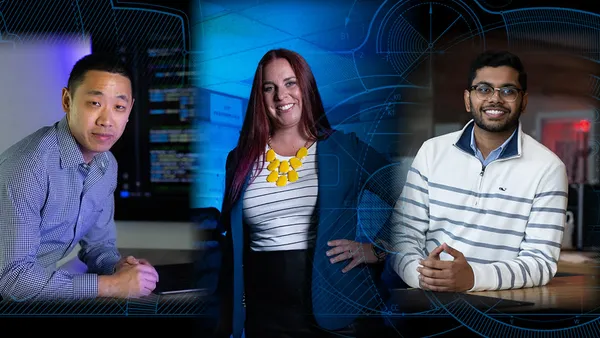Dive Brief:
-
While the recent ransomware attack on Los Angeles Unified School District highlights how crucial cybersecurity measures are for schools and districts, schools can also use the event as a real-world launching point to teach students about the importance of cybersecurity and practicing good online hygiene — and even consider offering classes and programs to help students become experts.
-
That’s the path Superintendent Matt Miller has taken at Lakota Local Schools, a district located just north of Cincinnati, Ohio. Miller launched a cybersecurity program for high school students four years ago, allowing students opportunities to graduate into college programs and jobs with security certifications that earn them around $70,000 a year, he said.
-
“It is an important life skill to understand cybersecurity, both personally and professionally," Miller said.
Dive Insight:
Digital citizenship courses and lessons, where students learn how to navigate the online world, are typically found throughout the K-12 curriculum. These classes teach students how to create and consume digital content and can be woven into other toolsets, including social-emotional learning skills or digital etiquette.
Cybersecurity is a step beyond digital citizenship, a toolset students can use to navigate digital spaces more safely. Miller said while it’s important that students learn to be mindful of their digital footprint, his district’s program gives them the skills to strengthen the safety of that online world.
The program starts in the 10th grade and, to date, 420 students have finished at least one class. In the first year, students learn the basics of cybersecurity. By the end of their second year, they’ve earned certifications that can land them jobs. And in the final year, students match with mentors who help them learn more about opportunities outside of school.
“My biggest recommendation is for schools to talk with business partners, because they all have cybersecurity programs,” Miller said. “You can talk with them about what they think they need.”
Over the last four years, students in the program have gone on to college majoring in cybersecurity, walked into jobs straight out of school as 18-year-olds, or taken jobs as undergraduates.
Miller said a local company, U.S. Bank, pays for students to attend college while offering them a salary to work for the bank in cybersecurity. Sixteen of the program’s students placed in the top 15% in the National Cyber League college competition, and 98 have earned National Cyber Scholarships.
With millions of open jobs in cybersecurity expected in the next few years, Miller said, this skill is something every district should consider offering. Lakota is looking at launching an introduction to cybersecurity class at the middle school level next.












